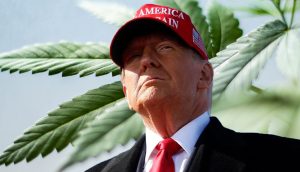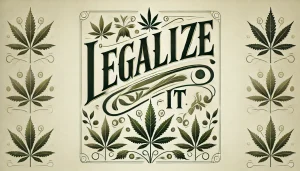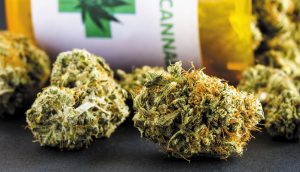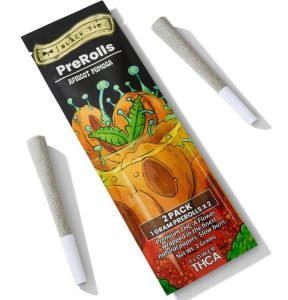What should cannabis cost?

From Amendment 64: “The General Assembly shall enact an Excise Tax to be levied upon marijuana sold or otherwise transferred by a Marijuana cultivation facility to a marijuana product manufacturing facility or to a retail marijuana store at a rate not to exceed 15 percent prior to January 1, 2017 and at a rate to be determined by the General Assembly thereafter, and shall direct the department to establish procedures for the collection of all taxes levied. Provided, the first 40 million dollars in revenue raised annually from any such excise tax shall be credited to the Public School Capital Construction Assistance Fund created by Article 43.7 of Title 22, C.R.S., or any successor fund dedicated to a similar purpose. Provided further, no such excise tax shall be levied upon marijuana intended for sale at medical marijuana centers pursuant to Section 14 of this Article and the Colorado Medical Marijuana Code.”
It’s up to us to decide how we want to tax ourselves. That’s what’s up with this November’s election. Well, that and some pesky amendment that would allow us to fund our public schools effectively; but who’s paying any attention to that?
That cannabis users will tax themselves is not in question. We have to. It’s actually written into Amendment 64, a 15 percent excise tax to be approved by the voters. But we won’t get to vote on whether to approve the 15 percent excise tax so wisely placed in the language of Amendment 64, because our legislature did a little tweaking to the measure.
As it stands, Proposition AA would take the 15 percent written into Amendment 64, impose an additional 10 percent state sales tax in addition to the 2.9 percent state sales tax that currently stands (though no one can tell me where this figure comes from). Together, these taxes amount to about 28 percent. But that’s not all Proposition AA calls for. The measure also allows the state legislature “to increase or decrease the excise and sales taxes on [recreational] marijuana so long as the rate of either tax does not exceed 15 percent.”
So, following the language, the State Legislature may increase the total state sales tax on recreational cannabis to 32.9 percent. This they could do without further input from voters if Proposition AA is passed. Of course, the State Legislature might not necessarily want to increase the tax. It is possible they could decide to decrease the tax.
So we’re talking about a 33 percent state sales tax PLUS whatever your local jurisdiction decides is “fair.” It is a HUGE tax. Make no mistake. At 33+ percent, it represents one of, if not the highest, taxed products…anywhere, anytime. And that is by design. The framers of Amendment 64 knew that their constituency wanted a high tax on cannabis similar to the excise taxes that exist for alcohol and tobacco. In the case of tobacco, those taxes can exceed 30 percent.
The higher taxes are meant to generate revenue that would not only be used to regulate the recreational cannabis industry, but would also allocate resources to the funding of other state programs, primarily new school construction. In addition, the state would give a percentage of the revenues generated back to those counties that participated in recreational sales of cannabis.
But like most issues that go before us on the ballot, this one has at least two sides.
Those for Proposition AA point to the need for a strong and robust regulatory system and the resources necessary to support it. In their view, “an effective regulatory system may discourage federal interference with the industry, as the sale of marijuana remains illegal under federal law.” The main point is to keep the federal government at bay, which the US Attorney General has said they would, as long as the state adequately regulates its cannabis industry. Accordingly, the adoption of the additional 10 percent sales tax is, in the proponents’ opinion, necessary to bolster a regulatory system that may not be adequate to prevent further intrusions by the Federal Government.
Those in favor of Proposition AA further point out that if the funding necessary to properly regulate the recreational industry falls short, the needed resources could be taken from other essential state programs such as education, public safety, and healthcare, though there is no language in either Amendment 64 or Proposition AA that states this.
Proponents of the proposition also point out that the increased revenues would provide additional funding to modernize older schools, build new schools, and alleviate health and safety concerns at other schools. In turn, these projects would translate into local construction jobs and a boom in our economy.
The consensus seems to be that the recreational cannabis user—particularly those traveling to Colorado from elsewhere—will pay whatever is demanded just for the ability to purchase cannabis legally from a shop.
Those against Proposition AA, however, are apt to point to the seeming injustice of placing the burden of state revenue generation so heavily on the backs of consumers. In fact, they believe the excessive taxes will encourage consumers to continue to patronize the black market. One of the main goals of Amendment 64 was to hamper, if not outright abolish, the criminal cannabis market. Accordingly, by incentivizing the consumer to continue to patronize illegal outlets, the proposition runs directly counter to this goal.
Opponents further point out that the taxes created by Proposition AA were not those originally designed and put forth in Amendment 64. The second sales tax created by the proposition was, “not anticipated by supporters of Amendment 64.” Moreover, they believe the taxes originally called for in Amendment 64, in addition to the fees already required for licensing, will be adequate to ensure funding for a robust regulatory system.
Sean McAllister, spokesman for Colorado NORML and one of the people who helped draft Amendment 64, said he agrees with the need for strong regulation, but that, “with the normal tax called for in Amendment 64 we’d raise plenty of money to regulate the industry.”
So what happens if Proposition AA doesn’t pass? A main point of contention for the opponents of Proposition AA is its all-or-nothing approach. Instead of asking voters to decide on the excise and sales taxes separately, the legislature decided to make the vote up or down on the whole thing. If the measure fails, the state will still allow for the sale of recreational cannabis. It will likely default to the same tax schedule used for the medical cannabis market.
Will that be adequate to provide the 40 million dollars of school money promised by Amendment 64 along with the “robust” regulatory system we need to keep the Feds at bay? Possibly not; but that is yet to be determined. What we do know is that if the measure fails, the State Legislature will have to try again. They’ve got till 2017 to get it right.
(c) The Daily Doobie – Read entire story here.





